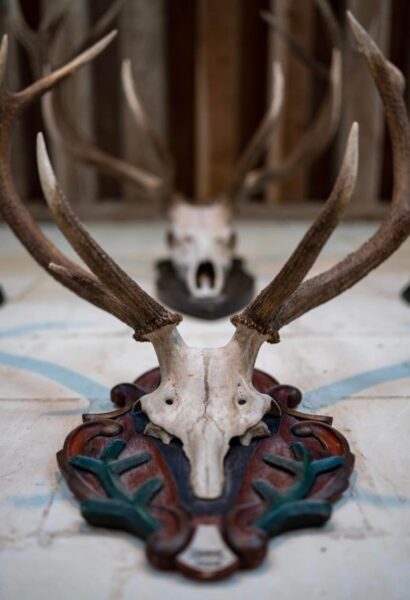Grandmother’s body buried beneath a flag. Naval officer, World War II, the Pacific front. My mother’s always saying that in the navy, my grandmother learned flat sheets with tight tucked corners, something with stars, sextant navigation. I hear the word sex. The way I want bodies I shouldn’t: my friend Marie. Her way of laughing with her whole face. Obscene, she calls it, but I think it’s a tiny miracle, an intimacy.
Your grandmother wasn’t gay, you know, my mother says.
Neither am I, I tell her.
She had six children, my mother says.
I have a cat. And a handful of air plants. And a small house in a small town in northern Arizona.
She used to drive cross-country, my mother says.
The younger kids crammed into a Ford Falcon, and a dog too. Once, in Wyoming, she bought four sets of antlers and roped them to the roof. A new kind of creature on the road.
She was an excellent sailor, my mother says.
Before the children, she sailed from Seattle to Hawaii. She fished and swam and navigated. Just my grandmother and another woman. They ran away from their husbands.
She wasn’t like you, my mother insists.
Okay, I say.
Snow outside in the pine trees. My mother is cooking chicken soup on my stove with my pots. Onions, carrots, celery, chicken.
Marie should be here, beer in her fist, laugh not far from her face. I’d tell her about the antlers, the flat tucked sheets, the sextant, Hawaii. I’d tell her about my grandfather and the other woman’s husband too. How they wrenched the women away from each other. I don’t know this, but I’d tell it to Marie like it’s fact. Two lovers. Two women. The Pacific. All that salt water, the stars, their bodies. Ours.



 The SmokeLong Grand Micro Contest (The Mikey) is now an annual competition celebrating and compensating the best micro fiction and nonfiction online.
The SmokeLong Grand Micro Contest (The Mikey) is now an annual competition celebrating and compensating the best micro fiction and nonfiction online.